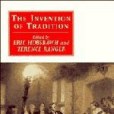內容簡介
Many of the traditions which we think of as very ancient in their origins were not in fact sanctioned by long usage over the centuries, but were invented comparatively recently. This book explores examples of this process of invention - the creation of Welsh and Scottish ‘national culture’; the elaboration of British royal rituals in the nineteenth and twentieth centuries...(展開全部) Many of the traditions which we think of as very ancient in their origins were not in fact sanctioned by long usage over the centuries, but were invented comparatively recently. This book explores examples of this process of invention - the creation of Welsh and Scottish ‘national culture’; the elaboration of British royal rituals in the nineteenth and twentieth centuries; the origins of imperial rituals in British India and Africa; and the attempts by radical movements to develop counter-traditions of their own. It addresses the complex interaction of past and present, bringing together historians and anthropologists in a fascinating study of ritual and symbolism which poses new questions for the understanding of our history. 霍布斯鮑姆(1917— ) 猶太裔著名左派歷史學家、社會史家,出生於埃及亞歷山大城,1919年遷居維也納,1931年遷居柏林,1933年移居英國並進入劍橋大學。1947年任倫敦大學講師,1970年升任經濟與社會史教授。1982年退休後任紐約社會研究新學院政治及社會史榮譽教授。其系列著作《革命的年代》、《資本的年代》、《帝國的年代》與《極端的年代》以宏富的敘事和曉暢的筆墨,成為近幾十年來影響廣泛的嚴謹細緻的通史著作。在《傳統的發明》(1974)和《民族與民族主義》(1985)中,他推進了西方學術界對民族主義的研究。

